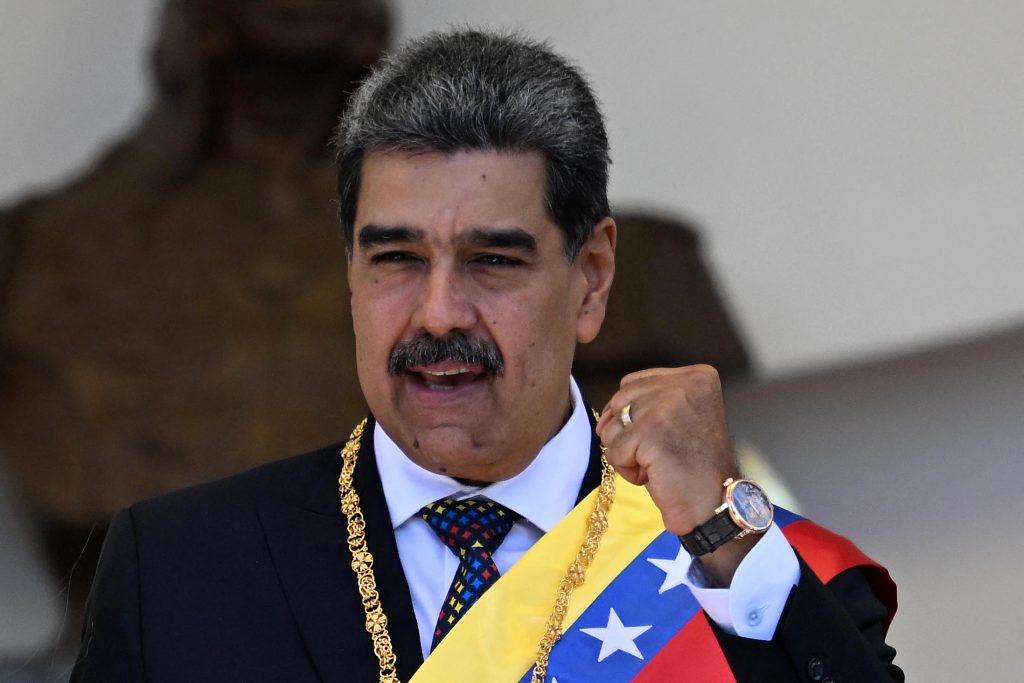Summarize this content to 2000 words in 6 paragraphs Venezuelan President Nicolás Maduro has called for a campaign for the “liberation” of Puerto Rico from the United States.Why It MattersMaduro, who took power in 2013 following Hugo Chávez’s death from cancer, was sworn in for a third six-year term this past Friday, despite rebukes from the United States and other governments that say he stole last year’s election and widespread protests ahead of the ceremony.The U.S. and other governments recognized Maduro’s opponent Edmundo González as the victor of last July’s election.On Friday, the U.S. announced a $25 million reward for information leading to Maduro’s arrest or conviction, highlighting a renewed effort to destabilize Maduro’s presidency and bolster the opposition’s bid to restore democracy.Although the chances of Puerto Rico being invaded appear unlikely, the comments serve as a reminder of the Venezuelan challenges that await President-elect Donald Trump when he returns to the White House on January 20.
Venezuela’s President Nicolas Maduro gestures as he leaves the Capitolio after taking the oath during the presidential inauguration in Caracas on January 10, 2025. Maduro has called for Puerto Rico to be liberated from the…
Venezuela’s President Nicolas Maduro gestures as he leaves the Capitolio after taking the oath during the presidential inauguration in Caracas on January 10, 2025. Maduro has called for Puerto Rico to be liberated from the U.S. using Brazilian troops.
More
Juan Barreto/AFP via Getty Images
What To Know Maduro invoked Simón Bolívar, the Venezuelan solider who liberated much of South America from Spanish rule, as he spoke about Puerto Rico.”Just as in the north they have a colonization agenda, we have a liberation agenda,” Maduro said during the closing of the International Anti-Fascist Festival in Caracas on Saturday. “And our agenda was written by Simón Bolívar. The freedom of Puerto Rico is pending, and we will achieve it with Brazilian troops…leading the way.”Newsweek has contacted via email the White House and the Trump transition team for comment.Puerto Rico has been under U.S. control since the 1898 Spanish-American War. Puerto Ricans have been U.S. citizens since 1917, but they cannot vote in general elections and have no voting representation in Congress because of the island’s political status.A majority of voters, 57 percent, opted for Puerto Rico to become a U.S. state in a nonbinding referendum in November, while just 12 percent voted for independence. The vote was the first referendum that did not provide an option for maintaining the island’s current status as a U.S. territory. But Puerto Rico’s status can change only with approval from Congress.What People Are SayingAmílcar Antonio Barreto, a professor of cultures, societies and global studies at Northeastern University whose work has focused on Puerto Rico and Latinos in the U.S., told Newsweek: “I don’t think anyone is going to take this seriously—in Puerto Rico, the U.S. or Brazil.”Christina Ponsa-Kraus, a professor of legal history at Columbia Law School, told Newsweek: “The Puerto Rican people have never—not once—voted for independence. For more than a century, they have been united in their desire to remain part of the United States one way or another, whether through statehood or some other form of association.”And this past November, statehood received 57 percent of the vote. While support for independence did rise, reaching a little over 30 percent, that still leaves a supermajority opposed to independence. In other words, President Maduro is just another in an endless line of politicians who are happy to ignore the will of the Puerto Rican electorate and instead to exploit the issue of Puerto Rico’s status for their own political gain.”Former national security adviser John Bolton previously told Newsweek he would advise Marco Rubio, Trump’s secretary of state nominee, “to ensure that Maduro does not believe he has won.”He added: “When the opposition loses momentum, it gives dictators like Maduro the opportunity to strengthen their grip.”The White House, following President Joe Biden’s meeting with González on Monday, said: “President Biden reiterated his support for Venezuela’s democratic aspirations and underscored the U.S. commitment to holding Maduro and his representatives accountable for their anti-democratic and repressive actions. This includes working closely with democratic allies across the hemisphere and around the world.”What’s Next Maduro began his third term more isolated on the world stage than ever, with the U.S. announcing bounties for him and several high-ranking officials.González said he plans to return to Venezuela to take up the mantle of president, although it is not clear if and when he would do so. The Venezuelan government has said González will be arrested if he returns.The U.S. and its allies have indicated they are willing to increase sanctions on Venezuela if there is further evidence of repression.













